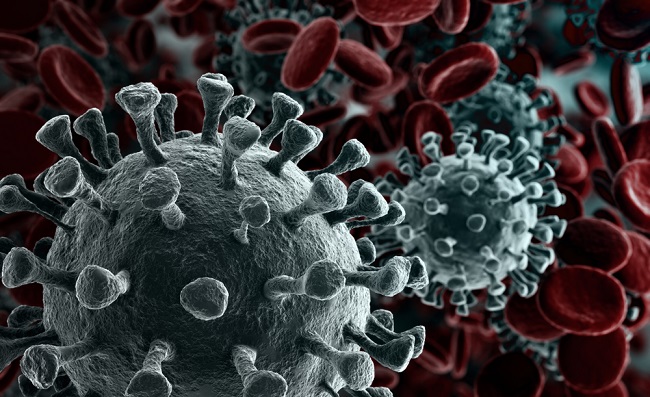Sharing a household with young children appears to put adults at no greater COVID-19 risk
Published: 19 March 2021
A new study suggests adults living with children are at no greater risk of testing positive for COVID-19 – even during periods when schools are open and there is active transmission of SARS-CoV2 in the community.
A new study suggests adults living with children are at no greater risk of testing positive for COVID-19 – even during periods when schools are open and there is active transmission of SARS-CoV2 in the community.

The research – led by the University of Glasgow in partnership with Public Health Scotland and published today in Archives of Disease in Childhood – also suggests the risk of testing positive with COVID-19 was actually lower for those adults living in a household with a child between the ages of 0 and 11, than it was for those in households without young children.
The risk was lower still for adults who lived in households with two or more children under 11 years-old.
The study, which looked at a large occupational cohort of the population, has the potential to inform future policy on nursery and school closure.
Using Scotland-wide data of all NHS Scotland healthcare workers and their household contacts between March and October 2020, the research team were able to examine what affect sharing that household with young children might have on COVID-19 risk.
It’s is currently understood that young children are much less likely than adults to have a severe COVID-19 infection, with most having mild or no symptoms at all. Scientists do not yet fully understand why this happens, though theories such as innate immune system response and cross-infection immunity as a result of exposure to other coronaviruses have been suggested.
The researchers believe that these findings provide evidence of a potentially interesting protective effect against COVID-19 infection in households with young children – an area they now believe warrants further study.
Dr David McAllister of the University of Glasgow, lead author of the study, said: “This study provides new evidence of a potentially interesting protective effect that young children may have on the rest of their household.
“Any protective effect of children on COVID-19 rate and severity in their household contacts would seem likely to involve cross-reactive immunity to endemic coronavirus infections acquired outside the home – for instance at nursery or school. Evidence of similarity between N proteins of SARS-CoV-2 and those of endemic beta coronaviruses (strains Cov-OC43 and Cov-NL63) have now been shown in research studies, and there is also evidence of cross-reactivity in antibody-mediated immunity, although it is currently uncertain how well this protects against COVID-19. Our study highlights that more research is needed to understand if young children are conferring some protection to those around them.”
Dr Rachael Wood Clinical lead for Maternal and Child Health at Public Health Scotland, and an author of the study, said: “This study adds to existing evidence on the limited role that children play in the transmission of COVID-19. More work is needed to explore the idea that living with children might offer adults some protection from infection, but what we can already safely say is that children are not major drivers of COVID-19 transmission.
Spending time playing with others their age is essential for children. However, this does sometimes mean that adults from different households will be brought together. When this happens, it is important for parents (as well as teachers and carers) to follow the hygiene and social distancing rules that are in force, to minimise the risk of infection spreading between adults.
It is also important that local authorities ensure that children have access to outdoor play areas where the risks of transmission are known to be much lower, especially in parts of the country where access to private outdoor space is limited.”
The paper, ‘Living with Children and Adults’ Risk of COVID-19: Observational Study’ is published in Archives of Disease in Childhood. Dr McAllister is funded by Wellcome David McAllister and would like to thank the Wellcome Trust for allowing him to divert his time to address the COVID-19 pandemic.
Enquiries: ali.howard@glasgow.ac.uk or elizabeth.mcmeekin@glasgow.ac.uk / 0141 330 6557 or 0141 330 4831
First published: 19 March 2021
<< March

